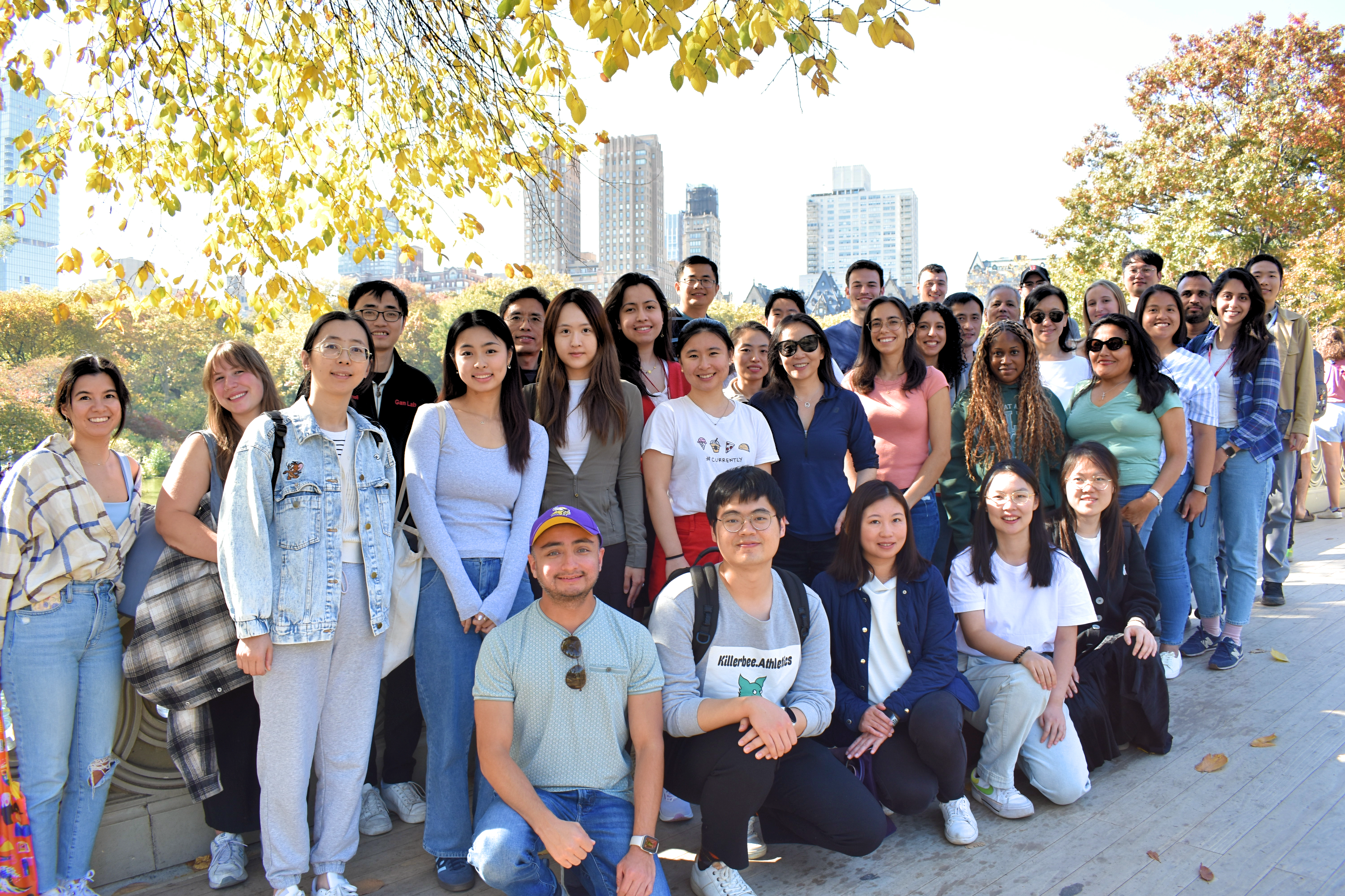Gan laboratory (@liganlab.bsky.social) - Bluesky
Gan Laboratory researchers combine biochemical and functional approaches to dissect the molecular mechanisms of neurodegenerative diseases, including Alzheimer’s and frontotemporal dementia. Using animal and human Induced Pluripotent Stem Cell (IPSC)-derived cellular models, the Gan team explores converging pathways in neurodegenerative diseases, particularly the accumulation and trafficking of toxic proteins and the aberrant activation of innate immune responses. Gan Lab investigators identified new mechanisms by which aberrant signaling in microglia impairs neuronal function, and discovered that Alzheimer’s-associated increases in acetylation of the protein tau mediate tau accumulation and toxicity, leading to two phase-one clinical trials with human patients. They plan to utilize functional genomics to discover novel therapeutic strategies to treat Alzheimer’s disease and frontotemporal dementia.
- Li Gan, Ph.D.
- Weixi Feng, PhD
- Yilin Feng, PhD
- Rong Shen, PhD
- Hao Chen, Ph.D.
- Li Fan, Ph.D.
- Shiaoching Gong, Ph.D.
- Taewoo Kim, Ph.D.
- Se-In Lee, Ph.D.
- Yajing Liu, Ph.D.
- Wenjie Luo, Ph.D.
- Sarah Naguib, Ph.D.
- Wenhui Qu, Ph.D.
- Yuansong Wan, Ph.D.
- Mingrui Zhao, Ph.D.
- Guillermo Coronas-Samano, MSci.
- Tamara Raad, MSc
- Kendra Norman, M.S.
- Man Ying Wong, M.S.
- Akida Abulimit
- Ana Carney
- Caitlin Castagnola
- Brian Evans
- Nessa Foxe
- Claire Hu
- Matthew Mahoney
- Pearly Ye
- Jingjie Zhu
Areas of Investigation
Our laboratory focuses on dissecting the molecular pathways in Alzheimer’s disease (AD) and frontotemporal dementia (FTD), two of the most common dementia in the elderly population. We are intrigued by two interconnected mechanisms that are common to neurodegenerative processes: the accumulation of protein aggregates and miscommunications between neurons and glia, especially microglia. Accumulation of protein aggregates could activate microglia, exacerbating neurodegeneration. On the other hand, microglia could be activated to remove abnormal protein aggregates. We are particularly interested in how aging-related pathways, such as sirtuins, modulate the processes underlying the abnormal accumulation and microglial activation. Our long-term goal is to develop new small-molecule or cell-based approaches to delay or prevent the progression of these devastating aging-associated diseases.
Lab Focus
- Do aging-related pathways affect the stability and clearance of protein aggregates in AD and FTD?
- How does aging affect inflammatory and protective function of microglia
- Can we generate patients-specific microglia to remove abnormal protein aggregates?
- What are the roles of aging-associated epigenetic modification in neuronal injury and inflammatory responses?
Lab Achievements
Our lab aims at dissecting molecular mechanisms and developing novel therapeutic strategies for neurodegenerative diseases, in particular Alzheimer’s disease (AD) and frontotemporal dementia (FTD). We focus on three interconnected mechanisms underlying neurodegeneration.
- Found that cathepsin B (CatB) degrades the protein amyloid ß (Aß) via a unique catabolic mechanism. Accumulation of Aß, the key pathogen in AD, results from an imbalance of production and clearance/degradation.
- Showed that reducing cystatin C (CysC), the endogenous inhibitor of CatB, lowers Aß levels in a CatB-dependent manner, establishing a critical role of CysC-CatB axis in regulating Aß degradation and clearance.
- Discovered that the activation of sirtuins—class III histone deacetylases strongly associated with longevity—protects neurons by block NF-¿B activation in microglia through deacetylation.
- Found that the neural stem cells in the hippocampus of AD mice exhibit abnormal development and impaired functional integration. By combining in vivo labeling, confocal microscopy and electrophysiological recordings, we identified an Aß-induced aberrant neuronal network as the primary mechanism.
- Discovered a new mechanism that contributes to the accumulation of tau, a key pathogen in AD and FTD. We found that tau is acetylated and acetylation blocks the degradation and tau. Moreover, reducing tau acetylation with a small molecule inhibitor leads to depletion of pathogenic phosphorylated-tau in neurons. These findings offer a novel therapeutic direction in AD and related neurodegenerative diseases.


